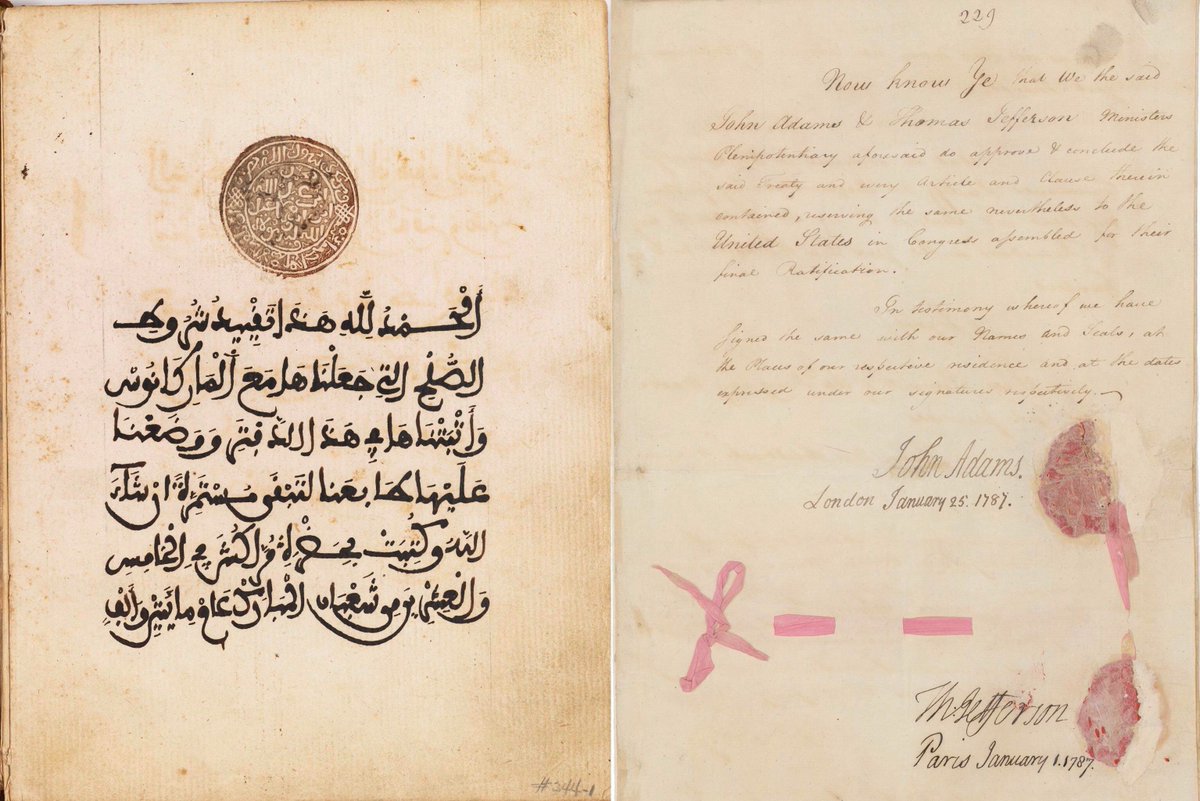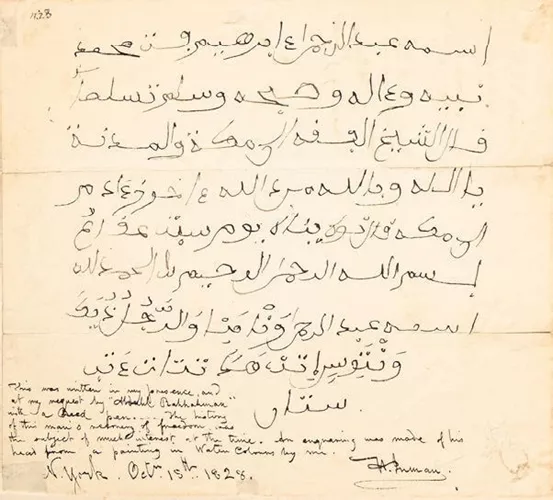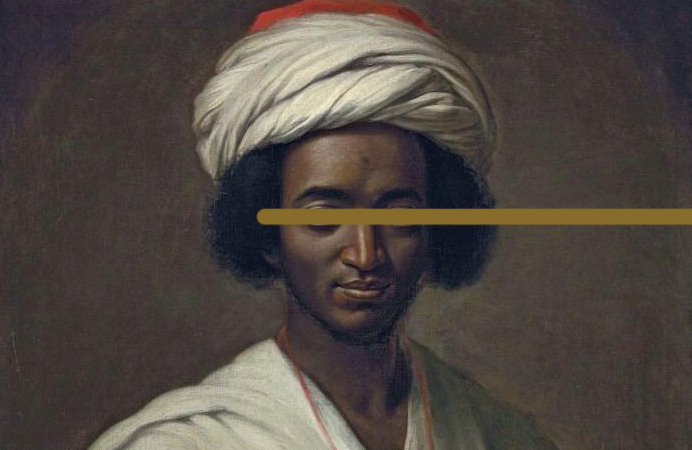In the year 1788
Abd ar-Rahman Ibrahim Ibn Sori was determined to make the man about to buy him, Thomas Foster, understand his awful mistake: the 26-year-old was the heir to one of Africa's most powerful kingdoms, and he wasn't meant to be enslaved.
Abd ar-Rahman Ibrahim Ibn Sori was determined to make the man about to buy him, Thomas Foster, understand his awful mistake: the 26-year-old was the heir to one of Africa's most powerful kingdoms, and he wasn't meant to be enslaved.

Abdulrahman Ibrahim Ibn Sori was born in 1762 in West Africa. He belonged to one of the most noble and influential families in the region. His father, Emir Ibrahim Sori, was a skilled military leader who successfully established his kingdom by defeating neighbouring tribes
Abdulrahman, as the eldest son, was destined to inherit Futa Jallon, his father's realm. He received a comprehensive education, attending the Islamic university in Timbuktu, Mali. There, he studied law, and became fluent in four African languages and Arabic.
He was granted command of a regiment of 2000 troops in his father's army when he came home at the age of 21. It was most likely the equivalent of the modern-day rank of colonel. He and his troops were attacked while on campaign, and Abdulrahman was taken by a neighbouring tribe
They subsequently sold him to British slavers in exchange for muskets and rum, and he was sent to the Americas along with many other Africans. At the age of 26, he was acquired by Thomas Foster, a plantation owner in Mississippi, a Spanish territory.
Foster's plantation farmed tobacco at the time since cotton had not yet been the region's major crop. When Abdulrahman arrived, he had his long hair, a mark of his nobility, clipped and was immediately assigned to hard labour. He did exactly what you'd anticipate. He got away.
He described Mississippi as "backward and primitive" He made it for weeks on the run. He did, however, recognise his dilemma. He was in a new nation with no allies or money, and even if he could reach a port, he wouldn't be able to board a ship back to Africa.
He accepted the fact that he was no longer a royal and returned to Foster's estate. Abdulrahman was significantly more educated and intelligent than his master, who was illiterate and ignorant. He also possessed a unique set of skills that made him highly desirable.
The plantation quickly became the region's greatest cotton grower, and Abdulrahman found himself in charge of the enterprise. He was a natural leader who made his master a lot of money, so he was allowed certain privileges.
He married a plantation worker who also worked as a doctor and midwife, and they had nine children. He was also permitted to have a vegetable garden and sell his produce in town in order to keep the money.
He was selling his veggies at the market in 1807, nearly 20 years after arriving in Mississippi, when he had a fortuitous meeting that changed the trajectory of his life. It was in Natchez, Mississippi, that Abdulrahman met Dr. John Cox, an Irish physician.
It turns out that decades earlier, Cox was serving as the surgeon on a British ship that sank off the coast of Africa. Cox washed up on the shore in West Africa and was taken in by none other than Abdulrahman’s father, Ibrahim Sori.
Cox made it his duty to release Abdulrahman, not only to right the wrong that had been done to him, but also to return the obligation owed to his family, who had aided him so many years before.
Foster declined Cox's offer to buy Abdulrahman's freedom. He offered $1,000, which was a lot of money in 1807, but Foster declined. Abdulrahman’s plan of making himself invaluable had worked too well.
The other thing Cox did was to provide an independent verification of Abdulrahman’s story that he was in fact a prince. A story which, until that point, no one else believed.
The story of this unexpected meeting and the prince who became a slave quickly circulated. Andrew Marschalk, a Natchez-based reporter, interviewed Abdulrahman and discovered that he knew Arabic.
The fact that he spoke Arabic led Marschalk to believe that Abdulrahman was Moroccan. Abdulrahman didn't bother correcting him since Moroccans were regarded superior to West Africans in their racial order, and his uncertainty about his birthplace may help him get his release. 

Dr. Cox fought for Abdulrahman's liberation until his death in 1816. Everyone assumed he was Moroccan, which is significant since Morocco was the first country to establish a treaty with the United States of America. This pact provided Moroccan subjects' protection in the US
Abdulrahman, who had studied law, became aware of the pact and realised it may be the key to his release. Marschalk, a local newspaperman, assisted Abdulrahman in sending a letter to the Sultan of Morocco expressing his desire for reunification with his family in Morocco.
To demonstrate Abdulrahman's qualifications, numerous pages of the Quran in Arabic transcribed by him were delivered with the letter. The letter was sent by accident to the Sultan, who petitioned the President of the United States, John Quincy Adams, for his release. 

On February 22, 1828, by order of the president of the United States, Abdulrahman Ibrahim Ibn Sori was freed after 40 years in slavery.
When he got to Washington DC, he had a meeting with President Adams. From there, on March 18, 1829, he and his wife set sail to Liberia, which had become a colony of freed slaves who returned to Africa.
It is said that Abdulrahman attracted the curiosity of Thomas Gallaudet, the founder of the American School for the Deaf in Washington, DC. Gallaudet was a member of the American Colonisation Society, whose purpose was to propagate Christianity in Africa.
He met with Abdulrahman and asked him to show his commitment to Christianity by writing the Lord’s Prayer in Arabic. Abdulrahman just wanted to make more contacts with influential Americans to help free his family, so he obliged by writing it down on a page.
Years later, after Abdulrahman had gone back to Africa and had passed away, they discovered that he in fact hadn’t written down the Lord’s Prayer, but instead had written the first paragraph of the Quran. 

• • •
Missing some Tweet in this thread? You can try to
force a refresh

 Read on Twitter
Read on Twitter






